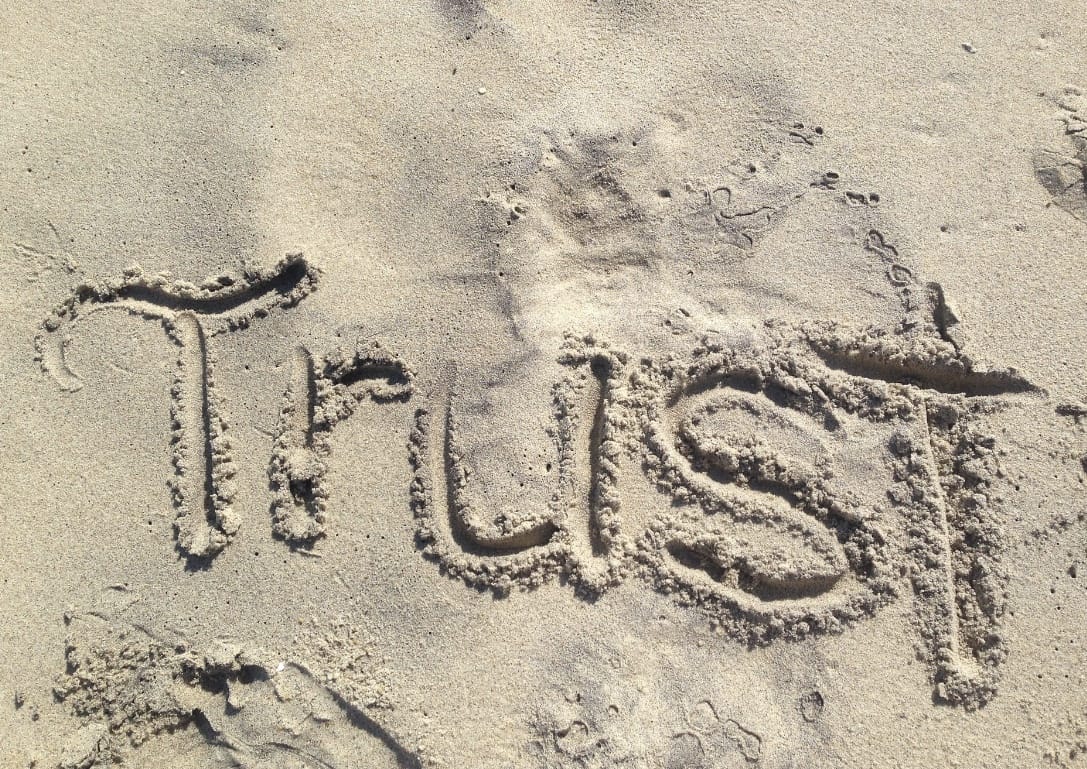How we learn to trust
One of the first things we learn as a newborn is whether we can trust that our needs are going to be met. Erikson called this stage, trust vs mistrust, and he posited that the resolution of this struggle is the foundation from which our identity grows. It is from our early interactions that we learn if the world is trustworthy, if we can trust others, and if we can trust ourselves.
Trusting ourselves can be scary. It makes us feel vulnerable.
When we are faced with a crisis, we learn quite a bit about how much we trust ourselves. How quickly can we make decisions? How often do we second guess ourselves? Turning to others for advice is a good idea, but sometimes we are so caught up in asking for advice that we fail to listen to our inner voice.
Brene Brown has an acronym for learning to trust–BRAVING. She says that boundaries are important–knowing in your own mind what is ok and not ok. Reliability is next–do you follow up on what you say you are going to do? Do you hold yourself accountable for your mistakes and decisions? Vault–do you keep information private that are not yours to share? Do you maintain a sense of integrity or do you go for the quick and easy action? Nonjudgment–do you refrain from judging yourself and others when asking for help? And finally, are you generous to yourself, giving yourself compassion when you need it?
Curious what coaching can do for you?
Schedule your free 30 minute discovery session to find out if coaching is right for you.
Cultivating trust as a leader
The changes going on in the work world right now are leaving many employees reeling from change and even fearful that they may lose their jobs. They need a leader who can manage stress via calm and deliberate actions. It’s important that you take the time to slow down and manage your own stress so that you can lead from that place of peace. Self-care is of utmost importance right now–eating well, getting sleep, exercise, and checking in with a coach, mentor, or therapist when needed. It may not seem that you have 20-30 minutes to spare, but it’s imperative that you make the time. Remember that these actions also provide a good example for your employees.
Transparency should come from a place of empathy.
People need leaders who can be honest with them, while acknowledging their need for a sense of hope and control in the midst of uncertainty. As Brown often says, be clear and kind. You don’t want to hide bad news, but you can deliver it in a way that reduces panic. Remember to be open and receptive to feedback. People feel more control over uncertainty when they feel their voice is heard.
Finally, practice self-compassion. This is a tough time for everyone. You aren’t alone in this. Don’t beat yourself up for mistakes. Instead, give yourself words of kindness and understanding and do your best. We will get through this together.
Coaching packages big and small
If you’re ready to change how you manage change, we can work together to develop the plan and package that’s right for you.








